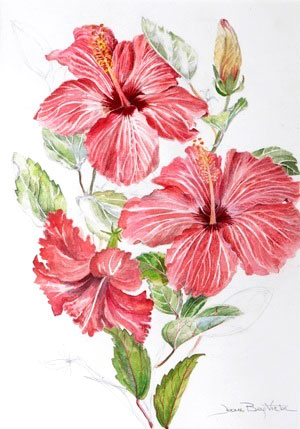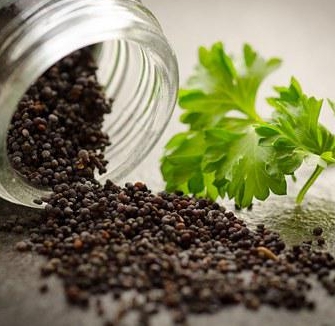STAY HEALTHY AND COOL ALL SUMMER LONG WITH HIBISCUS
The beautiful white, yellow, red, pink and purple hibiscus flowers growing in your back-porch pots are more than meets the eye. This herb is not only lovely; it is loaded with powerful and healthful nutritional properties.
Hibiscus is native to Africa but has since been cultivated in North America. Topically, this herb has an impressive healing capacity. It is commonly incorporated into body washes and can be used to treat eye infection, itchy skin, and wounds. Hibiscus leaves are used in conditioning shampoo while hibiscus flowers are commonly utilized in making red dye.
Though more research is being conducted, many studies have illuminated hibiscus’ ability to alleviate hypertension. Along with yoga, meditation, and omega-3 fatty acids, a regular consumption of hibiscus can naturally aid in lowering blood pressure.
Known as rose mallow or sour tea, hibiscus has a relieving ability to cool the body while nourishing and soothing muscle tissues. During Fort Collins’ hot summer season, this is a great herb to drink as an iced tea to alleviate high body temperatures and muscles fatigued from summer play.

MATERIA MEDICA: HIBISCUS
Latin Name: Hibiscus spp., including H. rosa-sinensis, H. sabdariffa. H. syriacus
Family: Malvaceae (Mallow Family)
Part used: Flower
Energetics: Sweet, sour, bitter, cool
Actions: Antibacterial, anti-inflammatory, antioxidant, antiparasitic, antiseptic, digestive, diuretic, refrigerant, sedative, stomachic and tonic.
Uses:
- Bladder Infection
- Cancer
- Constipation
- Cough
- Diarrhea
- Fever
- Hangover
- Hypertension
- Liver Disorders
Preparation and Dosage
Tea – 1 tablespoon for 10oz water, can be brewed as a sun tea and combines nicely with peppermint, nettle, and marshmallow
Safety considerations:
People who are very chilled should not consume hibiscus due to its cooling properties. Individuals with allergies or hypersensitivity to hibiscus should avoid this herb as well. Though uncommon, using hibiscus topically can cause irritated skin, such as dermatitis. If so, discontinue your use of this herb.


